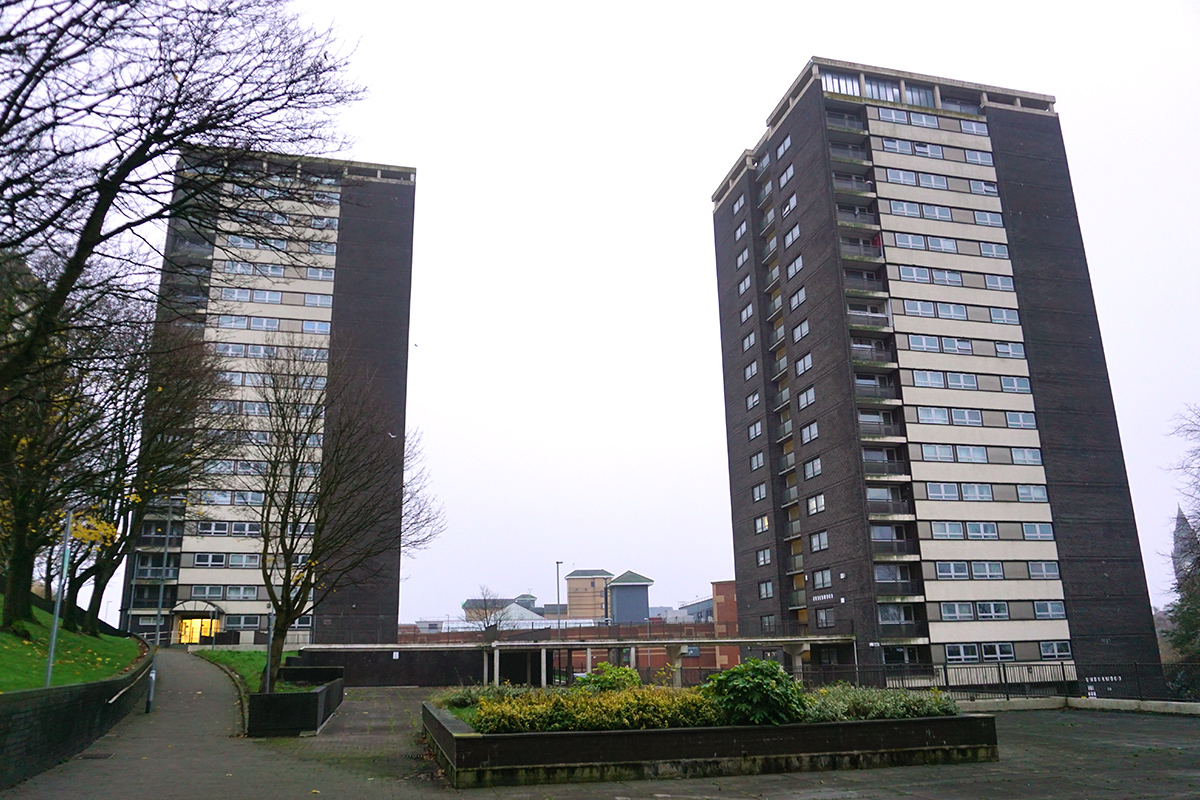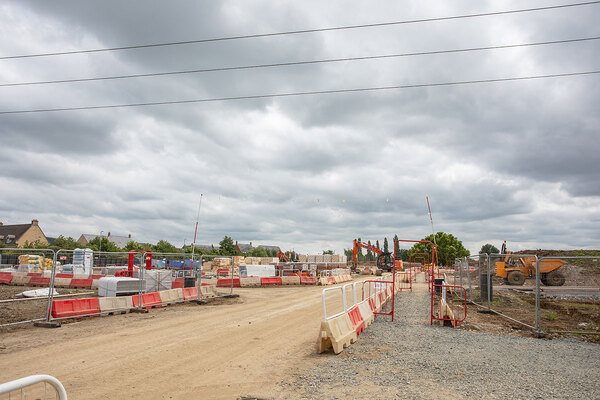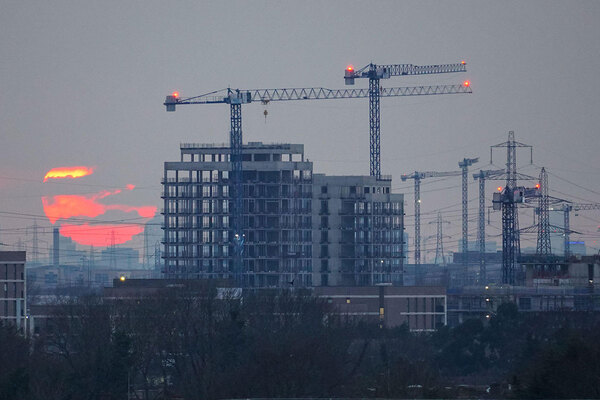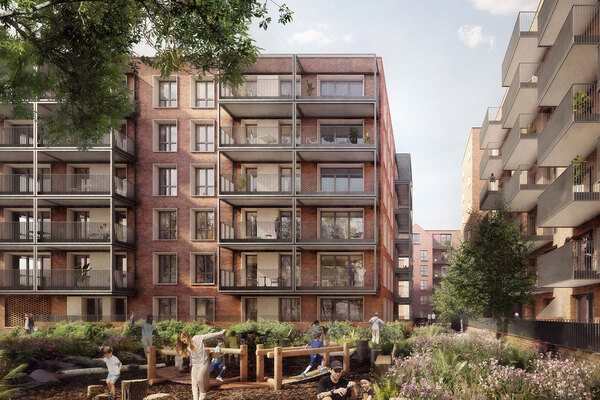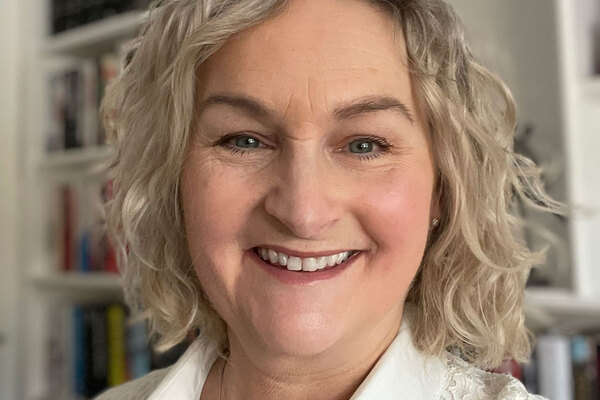What went wrong in Rochdale?
The death of a young boy from mould exposure in a flat run by a social landlord raises questions for the whole sector. Grainne Cuffe reports

Water is pouring into John’s* bathroom like a waterfall. It has been doing so for more than 10 years.
The leak has been a persistent problem since he moved into his Rochdale Boroughwide Housing (RBH) flat in 2007. John has been living with damp and mould ever since. The property has had no heating or hot water for eight years. John believes the way he has been treated is related to his race.
RBH is in the middle of a national scandal related to Awaab Ishak, a two-year-old boy who died in 2020. A coroner’s inquest recently concluded that his death, from a respiratory illness, was caused by the damp and mould in his RBH home. Awaab’s parents also say their race was a factor in their treatment by RBH.
Since the findings hit the headlines, questions have been asked in the sector and outside. Was this a one-off case of poor repair in an otherwise functional organisation? Or had something deeper gone wrong?
Everyone in the social housing sector should, by now, be familiar with the circumstances of Awaab’s death. He was the child of Faisal Abdullah and Aisha Amin. His father came to live in the UK in 2015 from Sudan and was joined by his wife in 2017.
The couple lived in the Freehold estate in Rochdale when Awaab was born on 13 December 2018. By then, Mr Abdullah had already noticed and complained about mould growing in their one-bedroom flat. His first complaint was in 2017; RBH told him to paint over the mould. Mr Abdullah continued to follow the advice, but the mould was “recurring and consistent”.
In June 2020, he instructed solicitors and initiated a claim over the conditions, but RBH policy meant that any repairs would not be done until an agreement had been reached. This decision has been criticised by the Housing Ombudsman and legal experts.
‘Lifestyle’ assumptions
After liaising with the family, a health visitor also contacted RBH to express her concerns about the mould in the flat and its potential impact on the health of Awaab. An inspection by RBH that month found mould in the kitchen, the bathroom and a bedroom cupboard that needed treatment.
But RBH did not deal with this information properly. The association used numerous different IT systems and not everyone who had contact with the family had access to the same information. In November 2020, the health visitor re-sent her letter to RBH at the request of Mr Abdullah. The same month, a technical inspector at RBH attended the home over concerns about a possible leak from it into the property below. He told the inquest that Ms Amin was in the flat and that she was quite upset as she showed him around.
It emerged at the inquest that RBH staff had blamed the family’s lifestyle for the condition of the property. This included an assumption about “ritual bathing”, which appears to have been based on their race.
However, the coroner concluded that the mould was due to “normal daily living activities” and a lack of effective ventilation. A week after the inquest, RBH admitted it had made “assumptions about lifestyle and we accept that we got that wrong”.
On 15 December, the Regulator of Social Housing (RSH) revealed that it had deemed RBH non-compliant for governance after an investigation. It also found RBH in breach of the Home Standard and the Tenant Involvement and Empowerment Standard. RBH self-referred to the regulator a month after Awaab died, but it emerged in the RSH judgement that the housing association gave the regulator “inadequate information” about damp and mould.
“RBH staff blamed lifestyle for the flat’s condition, including an assumption about ‘ritual bathing’ which appears to have been based on race”
RBH waited almost two years after Awaab’s death to survey the homes on the Freehold Estate and when it did, almost 80% of the properties had some level of damp and mould.
“The widespread issues in its homes which it later found severely undermine RBH’s credibility and expose significant failings in the way it treats damp and mould,” it concluded.
The regulator said it lacks assurance that the social landlord has an effective risk management and internal controls framework, and a “board with sufficient capacity to ensure compliance with the regulatory standards”.
It found RBH in breach of the Home Standard because it does not have assurance that the issues on the estate are not replicated in any of its other homes. RBH also breached the Home Standard over the issues with its IT system and “poor communication” across the organisation. The regulator found RBH in breach of the Tenant Involvement and Empowerment Standard after it failed to hear from tenants about the state of their homes on the estate. “And therefore it has failed to communicate in a way that is appropriate to the diverse needs of tenants,” it said.
RBH breached the same standard because of the assumptions it made about lifestyle. The regulator said it lacks assurance that the “attitude towards, and assumptions about, Awaab’s family are not a wider issue with the potential to affect other RBH tenants”.
Following the regulator’s findings, a spokesperson for RBH said: “Everyone at RBH is driven by a desire to provide safe and comfortable homes we are proud of. Yet, mistakes have been made. We failed Awaab, his family and the community we serve.
“We would like to once again express our deepest sympathies for the tragic loss of Awaab, and we will forever remain sorry to his family.
“Today’s announcement by the regulator recognises that failure and the mistakes we have made. We accept this judgement and we are already working closely alongside the regulator to address their concerns and meet their expectations.”
RBH was created in 2002 after the Labour government launched its Decent Homes Programme. Rochdale, like many other councils at the time, opted to set up an ALMO. This was necessary to access additional funding under the government scheme. RBH was awarded £85m to bring the city’s council homes up to a decent standard.
However, after the government announced a full review of the Housing Revenue Account (HRA) subsidy system in 2007, the council estimated that its HRA would go into deficit by 2014-15 as a result. After a review and consultation, it decided to convert the ALMO into a ‘mutual’ housing association and transfer over its stock. The terms of the transfer were agreed in 2012.
Stock transfers involve the cancellation of historic housing debt by central government and, in theory, allow the newly independent housing association to access private finance to invest in improving homes and building new ones. But Inside Housing understands that the government offered less debt write-off than expected, leaving RBH in a challenging financial position from its very inception.
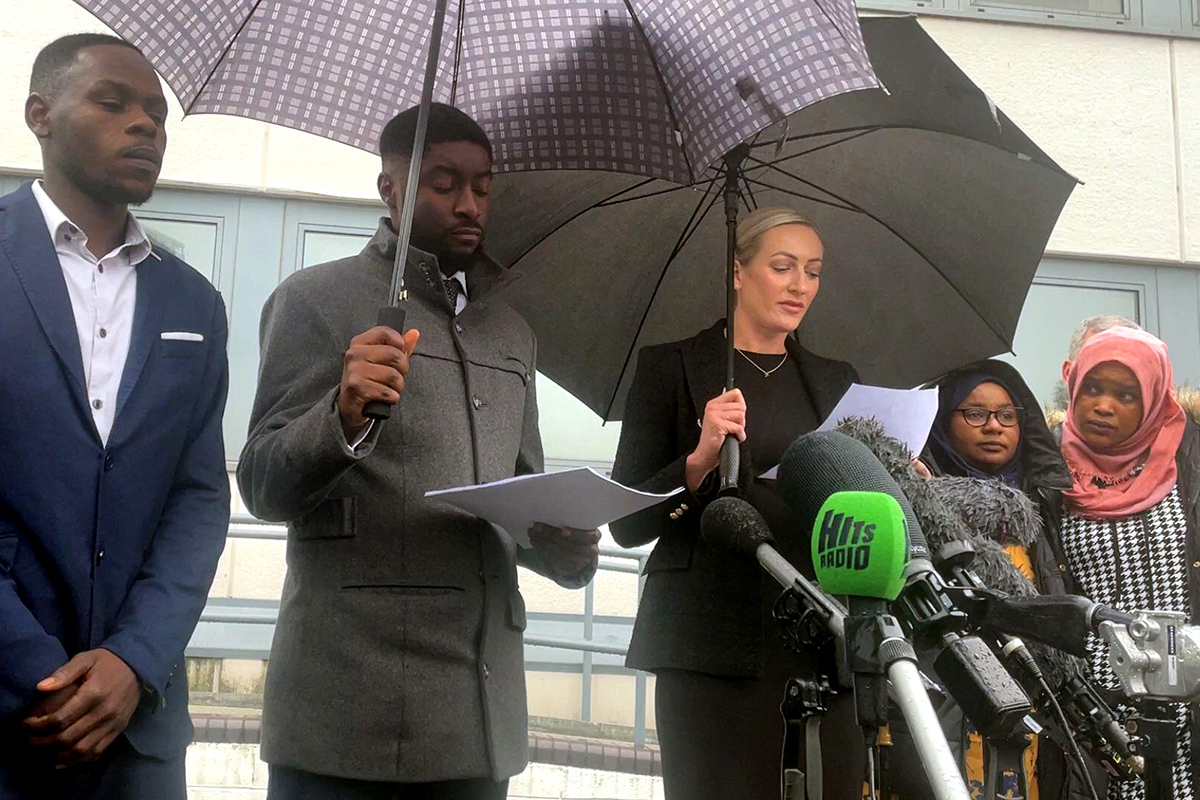
Complex governance system
The new association also adopted a unique model. An April 2011 appraisal by the council said that “it was crucial to try and ensure that any potential new landlord was strongly committed to the locality”.
RBH became a mutual, a body supposedly owned by its residents. In practice, this involved a complex governance system. Members (residents) were able to elect 15 tenants to sit on a representative body, which also included eight elected RBH employees, one representative from the Turf Hill Tenant Management Organisation, and two people from the council.
This body appoints RBH’s board members and works with the board to develop its corporate strategy and policy framework. But a former staff member told Inside Housing this model has sometimes been cumbersome.
There is also some disquiet about the way the representative body has operated. Tenant Andy Roche lives with his partner in Lower Falinge, an estate being redeveloped by RBH. He was elected to the representative body in 2017, but was booted off two years later. The chair had compiled four strikes against him, including speaking to a local paper about RBH’s failure to carry out repairs and maintenance on his estate. Mr Roche had also criticised the housing association’s redevelopment plans for the estate.
In a letter on behalf of the chair, the RBH secretary said that Mr Roche, who is autistic, had committed a “serious breach” of the code of conduct by failing to turn up to several meetings over 12 months “without a valid reason”.
“I got ill with depression and didn’t contact them at the time,” he said. “When they were harassing me about it, I said, ‘I’m really sorry, I’ve been really ill’. They knew I was autistic.”
An RBH spokesperson notes that this decision was “taken solely by the other members of the representative body, following what they believed to be behaviour that breached the code of conduct”.
They said the decision to remove Mr Roche “followed extensive efforts to engage with him over the preceding year”.
“Ultimately, as an elected tenant representative, the representative body felt that Andrew’s non-engagement with the body meant that tenants were being denied the full representation they were due, and that it would be best for Andrew, and all tenants, if a new member was elected in his place,” they said.
Lower Falinge, where Mr Roche lives, forms part of wider redevelopment plans proposed by the housing association in central Rochdale which have been subject to a campaign by residents strongly opposed to it, particularly the proposed demolition of four of seven tower blocks known as the Seven Sisters.
An RBH spokesperson says the regeneration is “driven by the need to improve the quality of our homes and to make sure they meet modern standards” and was “taken following extensive community engagement”. The association says that all residents will be offered the chance to stay in the city centre.
It said: “We know the plans that were subsequently bought forward were not universally accepted by everyone in the community.
“We also acknowledge that a regeneration programme will impact those tenants currently living in the homes that are scheduled for demolition and replacement, or comprehensive refurbishment.
“However, the programme will fundamentally transform and improve the quality and mix of housing we provide, which we believe to be in the best interests of current and future tenants.”
But tenants have criticised the lack of detail in the plans. Some of those who have publicly spoken out against RBH have been threatened with legal action.
Saiqa Naz, a mental health professional and campaigner against the demolition plans, received two letters from RBH’s lawyers, including one which threatened to notify her employer – and did – of “partisan, inflammatory and unfair tweets you have recently posted about our client”. Ms Naz had claimed RBH was undertaking “social cleansing” through the programme. She described RBH’s approach as “horrendous”.
RBH said that some of the campaigning had impacted the “well-being of individual employees” and “as we have a duty of care to these employees, a warning letter was sent as a last resort”.
Rochdale councillors Daniel Meredith and Sultan Ali were suspended from the representative body in January, after the pair tabled a motion at a council meeting in December calling for RBH to reconsider its demolition plans for the Seven Sisters.
They were removed in April after a disciplinary panel found them in breach of the code of conduct, specifically the requirement to act in the best interests of RBH at all times. While not directly relevant to issues of disrepair, these stories raise questions about the culture at RBH, particularly its reaction to criticism.
While it was a very different organisation with different problems, there are some parallels with Kensington and Chelsea Tenant Management Organisation (KCTMO), which managed Grenfell Tower. KCTMO also had a complex governance structure, upbraided board members for criticising the organisation and sent legal letters to critical tenants.
The question with RBH is: did its culture play a part in how it handled repairs? This is difficult to answer definitively, but what is clear is that the problems faced by Awaab’s family were not unique.
Problems with repairs
John, the resident with the 10-year leak in his bathroom, said the state of his home has had an “enormous” impact on his mental and physical health. He says that RBH officers have visited his home numerous times to survey the leak, but that on many occasions nothing was done. When repairs were attempted, they did not resolve the issue. He believes RBH to be institutionally racist because of its poor response.
RBH said it abhors racism in any form. It admitted that it has not always handled his concerns quickly enough and said it has engaged with John at length to find him a suitable home.
Mr Roche, the resident who was kicked off the representative body, has suffered leaks, mould and cold living conditions for years. As Lower Falinge is being redeveloped, RBH has opted not to spend money replacing windows and doors.
On 1 December, the boiler in Mr Roche’s home broke down. There was no heating or hot water for six days before it was fixed. The couple said that RBH deemed the issue non-urgent.
Nick Wilson, an RBH tenant who suffers from mental and physical health problems, said he was forced to live with damp and mould for three years between 2016 and 2019. Mr Wilson, who took legal action against RBH and was compensated, said the damp and mould affected his health. He had dizzy spells and difficulty breathing.
His anxiety attacks and depression worsened. “I was getting lower in mood, to [the point] where I had no motivation to do anything. I didn’t want to eat or drink, I didn’t want to leave my flat.”
“The lessons are sector-wide and need to be applied at speed. Damp and mould must be up there now with gas, fire and legionella safety”
In 2020, he was moved to another property, where the boiler didn’t work for five days and the windows were not sealed properly. Although window repairs were carried out, Mr Wilson said water is still getting in and mould has started to grow on the wall inside. He described RBH’s complaint-handling as “despicable”.
RBH acknowledged the issues faced by Mr Wilson and apologised for failing to handle his concerns quickly enough.
Ben Clay, an organiser at Greater Manchester Tenants Union, said the organisation has been in touch with “many other tenants of RBH who are suffering while waiting for vital repairs”. Issues include severe damp and mould, and people who need adaptations because of disability.
In a statement, RBH told Inside Housing: “We take every resident complaint very seriously, and at the end of the last financial year, complaints were resolved, or had had a resolution offered or planned, within an average of five days. Nevertheless, we know that we haven’t always got things right. We continue to be deeply sorry for the mistakes we have made in the past.
“This week, our new interim chief executive, Yvonne Arrowsmith [replacing Gareth Swarbrick], commenced in post, and under her leadership we are fully focused on rebuilding trust with our tenants, stakeholders, and the wider community.
“Yvonne is reaching out to and seeking meetings with all the individuals – both tenants and campaigners – that have provided comment to Inside Housing so that we can work directly with them to respond to their feedback.
“Under Yvonne’s leadership, RBH is determined to rebuild and move forward as an effective, responsive, and tenant-focused organisation that has mutuality at its heart. That work starts in earnest this week.”
Mr Clay said that RBH’s mutual governance model has failed because it “does not listen enough to its tenants”, adding that there should be a “wholesale governance review” at the organisation.
One sector source, familiar with the organisation, said “there is no point in demonising” the staff and board of RBH, given the number of other organisations struggling with the same problems. “The lessons are sector-wide and need to be applied at speed. Damp and mould must be up there now with gas, fire and legionella safety,” the source said.
But Awaab’s family have called for the entire board to step down, and Rochdale Borough Council wants to bring the stock back in house, effectively abolishing RBH. The move would be unprecedented and it remains unclear how it would work.
At the time of writing, a petition calling for a new law to prevent any more children dying from damp and mould in social housing had more than 150,000 signatures. The National Housing Federation has consulted its members on ‘Awaab’s law’. It said it is committed to working with other stakeholders to develop and set specific targets around it.
One thing is clear. The coroner said that Awaab’s death should be a defining moment for the housing sector. That must now come to pass.
*Name has been changed
Sign up to our Best of In-Depth newsletter
We have recently relaunched our weekly Long Read newsletter as Best of In-Depth. The idea is to bring you a shorter selection of the very best analysis and comment we are publishing each week.
Already have an account? Click here to manage your newsletters.


